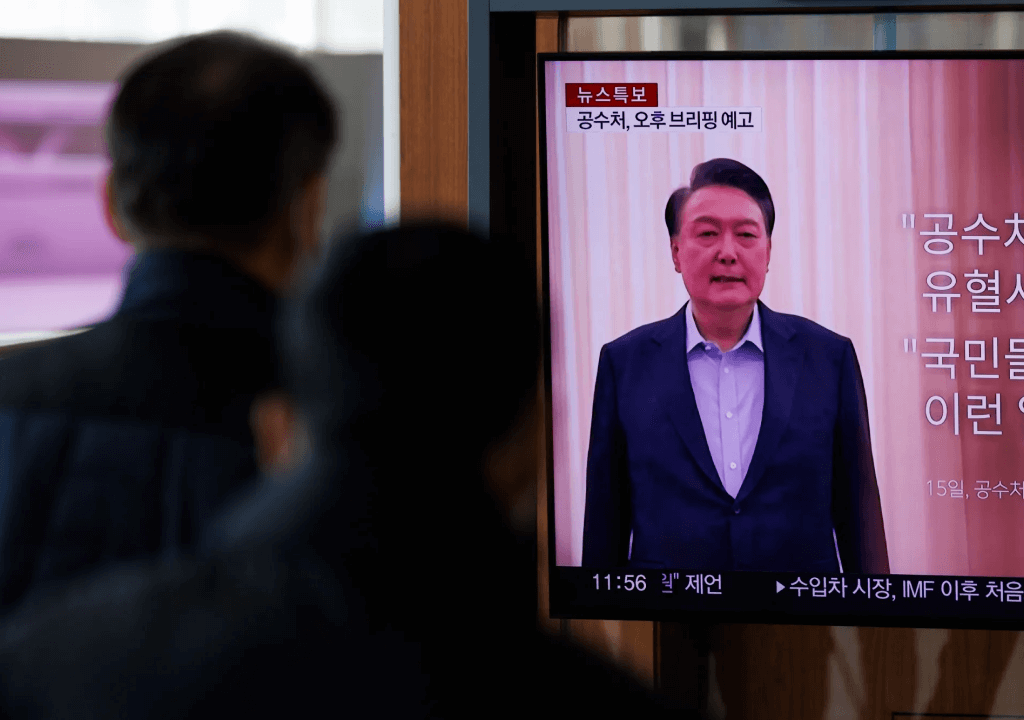After weeks of high drama, authorities arrested Yoon Suk Yeol, making him the first sitting president in the country’s history to face arrest. His detention, carried out by the Corruption Investigation Office, came after weeks of legal maneuvers and logistical challenges. Yoon was accused of insurrection linked to his brief declaration of martial law in early December. The standoff between the police and the president’s security service heightened the intensity of the saga. In early January, Yoon’s security team confronted police and prosecutors attempting to execute an initial arrest warrant, forcing them to retreat and secure a second warrant. Undeterred by this setback, police returned on Wednesday with an estimated 3,000 officers and successfully executed the second warrant, taking Yoon into custody. Public protests further fueled the tension, with demonstrators both supporting and opposing Yoon. Notably, opposition voices outweighed those of his supporters.
Yoon Suk Yeol can be held for up to 48 hours for questioning under the existing arrest warrant, according to media reports. After this period, authorities must decide whether to release him or seek a fresh warrant, allowing for an additional 20 days of detention. While serious allegations have been made against Yoon, he has not yet been formally charged. Inciting insurrection is one of the few crimes for which South Korean presidents have no immunity. If convicted, he could face a heavy fine, imprisonment, or even the death penalty, though South Korea has had a moratorium on executions for years. Unsurprisingly, His legal team has condemned his detention as illegal.
While Yoon undergoes questioning in the criminal case, South Korea’s constitutional court is reviewing whether to uphold the mid-December parliamentary vote to impeach him or dismiss it, allowing him to return to office and complete his five-year term. The court has 180 days from December 14 to make a decision, and analysts do not expect the eight justices to reach a quick conclusion, given the gravity of the political crisis South Korea has faced over the past five weeks. The court’s decision must be unanimous; otherwise, it will save Yoon’s presidency.
The dual political and criminal cases against Yoon will unfold in the coming weeks and months, though the ultimate outcome remains uncertain. In the worst-case scenario for Yoon, he could face a criminal trial on insurrection charges and be ousted from office by the constitutional court.
Yoon Suk Yeol’s arrest doesn’t mark the end of the turbulent period in South Korean politics that began with his declaration of martial law; rather, it elevates the political feud in the country. Despite his controversial actions, the president who declared martial law still retains support from his party and a segment of the population, highlighting the deep divisions within South Korean politics. They believe that Yoon is being targeted by left-wing politicians, with North Korea supposedly behind the move, and numerous conspiracy theories have emerged. On the other hand, the opposition believes Yoon is playing dangerous politics that could severely harm the country’s already divided political landscape.
Nevertheless, the arrest, after numerous hurdles, signals the conclusion of a pivotal phase in efforts to hold the authoritarian-leaning president accountable. It can be seen as a success for the country’s democracy, as it is spared from further disgrace. It also marks a victory for the opposition, who pushed for the arrest. When Yoon ordered armed troops to block lawmakers from entering the National Assembly, MPs, led by the main opposition Democratic Party, confronted the troops and voted to overturn the decree, forcing Yoon to rescind it just six hours later. And definitely, This is a win for the people who protested in large numbers in the streets, even amid harsh winter conditions.








